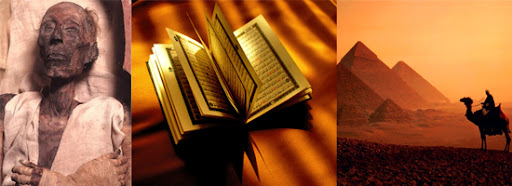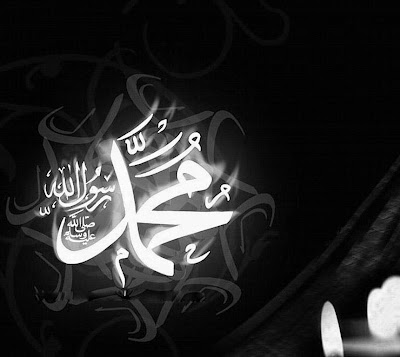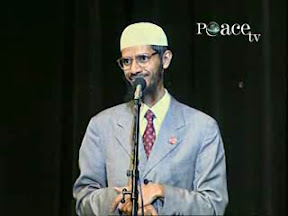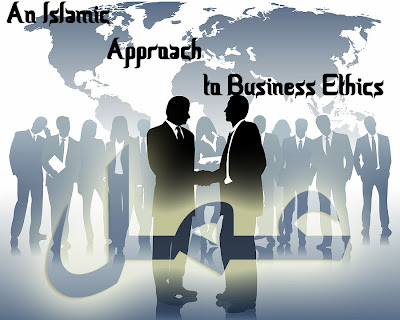What is Ethics?
Ethics may be defined as the set of moral principles that distinguish what is right from what is wrong. Ethics has a twofold objective: it evaluates human practices by calling upon moral standards; also it may give prescriptive advice on how to act morally in a given situation. Ethics, therefore, aims to study both moral and immoral behaviour in order to make well-founded judgments and to arrive at adequate recommendations. Sometimes ethics is used synonymously with morality. An action, which is morally right, is also called an ethical one. Codes of morality are called ethical codes. Business ethics can also be defined as business morality.
Business Ethics
Business Ethics is the branch of ethics that examines ethical rules and principles within a commercial context; the various moral or ethical problems that can arise in a business setting; and any special duties or obligations that apply to persons engaged in commerce. Generally speaking, business ethics is a normative discipline, whereby particular ethical standards are formulated and then applied. It makes specific judgments about what is right or wrong, which is to say, it makes claims about what ought to be done or what ought not to be done. Generally speaking, business ethics is concerned with the study of what is good and bad, right and wrong, and just and unjust in business.
Ethics in Islam
Islam places the highest emphasis on ethical values in all aspects of human life. In Islam, ethics governs all aspects of life. Ethical norms and moral codes discernable from the verses of the Holy Qur’an and the teachings of the Prophet (sws) are numerous, far reaching and comprehensive. Islamic teachings strongly stress the observance of ethical and moral code in human behaviour. Moral principles and codes of ethics are repeatedly stressed throughout the Holy Qur’an. Besides, there are numerous teachings of the Prophet (sws) which cover the area of moral and ethical values and principles. Says the Holy Qur’an:
"You are the best nation that has been raised up for mankind; You enjoin right conduct, forbid evil and believe in Allah." #Quran 3:110
The Prophet (sws) also says:
"I have been sent for the purpose of perfecting good morals." (Ibn Hambal[1], No: 8595)
This goes without saying that there is a general consensus among human beings about certain fundamental ethical values. However, the Islamic ethical system substantially differs from the so-called secular ethical systems as well as from the moral code advocated by other religions and societies. In the Islamic scheme of things, adherence to moral code and ethical behaviour is a part of I%man (faith) itself. According to the Islamic teachings, Muslims have to jealously guard their behaviour, deeds, words, thoughts, feelings and intentions. Islam asks its believers to observe certain norms and moral codes in their family affairs; in dealings with relatives, with neighbours and friends; in their business transactions; in their social affairs, nay in all spheres of private and public life.
Islam has its own distinctive value-based ethical system for business dealings. It prescribes certain specific guidelines for governing business ethics. It (i) enumerates the general ethical rules of business conduct, (ii) identifies ethically desirable forms of business, and, (iii) specifies the undesirable modes of transactions.
Given the nature of Islamic ethical and moral codes, it would be beyond the capacity of one paper to fully comprehend the subject. In the following pages, our effort will be to confine ourselves to the discussion of some specific principles of business ethics in Islam.
Freedom of Enterprise
Islam gives complete freedom to economic enterprise. Each individual in an Islamic society enjoys complete freedom in the earning of his livelihood. He can start, manage and organize any kind of business enterprise within the limits set by the Islamic Shari‘ah. However, freedom does not and must not operate without a sense of responsibility. An individual is free to pursue his economic activities provided he respects the code of conduct prescribed for the profession, which broadly means choosing things lawful and shunning matters unlawful. The dictates of the Holy Qur’an and the teachings of the Prophet (sws) serve to set a scale in everybody’s mind to distinguish between the lawful and the unlawful means of earning, and to prohibit or disapprove of all things that are either morally wrong or socially unacceptable.
Islam, as a matter of principle, prohibits all activities which may cause harm either to the traders or the consumers in the market. It encourages the prevalence of free market where everyone earns his sustenance without government intervention. However, it puts certain restraints in order to eliminate the incidence of injustice and check malpractices and unlawful operations. In all other respects market in Islam is free from any state intervention. However, if the people fail to take guidance from the Holy Qur’an in matters relating to business transactions, an Islamic state will strive to organize the market transactions on sound Islamic principles. Freedom of enterprise in an Islamic market will, therefore, be regulated by the (i) dictates of the Holy Qur’an and the teachings of the Prophet Muhammad (sws) and (ii) the directives of the temporal authority. During the early centuries of Islam, this function was mainly performed by the institution of Muhasbah (headed by a Muhtasib or market inspector). The institution of Muhasbah was an important institution whose functions were broad-based and multifarious, chief among them being keeping a watch on the harmful practices prevalent in the market and the society and checking the incidence of injustice and malpractices in the market.
Islamic Tenets Concerning Business Transactions
Islam demands a certain type of behaviour from the economic agents – the consumers and the producers. The behaviour prescribed for the economic units of the society are so devised as to lead to a happy state of affairs, which is the ultimate goal of Islam. An Islamic market is characterized by certain norms that take care of the interests of both the buyer and the seller. There are a number of rules of ethical discipline in Islamic commercial transactions without which business contract would be regarded as lacking perfection in the light of the code of good manners, decency and ethical excellence. Some of these tenets are as follows:
Keenness to Earn Legitimate (Halal) Earnings
Islam places great emphasis on the code of lawful and unlawful in business transactions. Many Qur’anic verses disapprove the wrongful taking of the property.
Says the Holy Qur’an:
"Do not devour one another’s property wrongfully, nor throw it before the judges in order to devour a portion of other’s property sinfully and knowingly." #Quran 2:188
"Do not devour another’s property wrongfully – unless it be by trade based on mutual consent." #Quran 4:29
The above verses prohibit the believers in no uncertain terms to devour the property of others by illegal means. The Prophet (sws) endorsed the importance of legitimate ways of earning in the following words:
Asked ‘what form of gain is the best? [the Prophet] said, ‘A man’s work with his hands, and every legitimate sale’. (Ahmad, No: 1576)
From the above it is clear that a Muslim trader must be determined to earn only through legitimate means. He should not only avoid illegitimate means in earning his provisions and livelihood but also distance himself from matters dubious and doubtful. The Prophet (sws) is also reported to have said:
"Leave what makes you doubt for things that do not make you doubt." (Tirmidhi, No: 2442)
Things legitimate and illegitimate are clearly defined in Islam and, in between them, are doubtful things, which should be avoided. A true Muslim businessman should be wary of the doubtful things in order to keep himself clear in regard to his faith and his honour because one who falls into doubtful matters is sure to fall into that which is unlawful (Haram). A tradition of the Prophet (sws) states:
" time will come upon the people when one will not care as to how he gets his money whether legally or illegally." (Bukhari, No: 1941)
Foremost among the unacceptable business practices strongly condemned in Islam is Riba. Riba (interest), by definition, is the extra sum the moneylender charges from the borrower for deferred payment. Islam has forbidden all forms of Riba since it involves both oppression and exploitation. Islam strictly forbids this form of tyrannical dealings and condemns it in severe terms. The Holy Qur’an says:
"Allah has permitted trading and forbidden Riba (usury)." #Quran 2:275
"Devour not Riba doubled and re-doubled. "#Quran 3:130
It further states:
"O you who believe! fear Allah and give up what remains of your demand for usury if you are indeed believers. If you do it not, take notice of war from Allah and his Apostle: but if you turn back you shall have your capital sums; deal not unjustly and you shall not be dealt with unjustly." #Quran 2:278
The Sunnah[2] is equally emphatic in denouncing Riba. The Prophet (sws) is reported to have said:
"May Allah send down His curse on the one who devours Riba and the one who pays it and on the two witnesses and on the person writing it." (Ahmad, No: 624)
These and many other verses of the Qur’an and traditions of the Prophet (sws) clearly demonstrate that all those business transactions which involve interest in one form or other, are unlawful in the sight of Islam. According to the Qur’anic teachings there is a clear distinction between genuine business profits and interest; while the former is recommended and desirable, the latter is hated and undesirable.
Trade through Mutual Consent
Mutual consent between the parties is a necessary condition for the validity of a business transaction. It, therefore, follows that a sale under coercion is not acceptable in Islam. A sale transaction is to be regarded as legal only if it is made through the mutual consent of the parties concerned. Taking advantage of someone’s plight and charging high price is also a form of pecuniary exploitation and as such forbidden in Islam. The Holy Qur’an says:
"O you who believe! eat not up your property among yourselves in vanities: but let there be amongst you traffic and trade by mutual goodwill: nor kill [or destroy] yourselves: for verily Allah has been to you Most Merciful." #Quran 4:29
Thus two key elements of general theory of contract are endorsed emphatically in these verses: mutual consent and gainful exchange. One can also find importance of mutual consent for legality of a business deal. The Prophet (sws) is reported to have said:
"A sale is a sale only if it is made through mutual consent." (Ibn Majah, No: 2176)
Truthfulness in Business Transactions
Islam encourages truthfulness in business transactions and raises the status of a truthful merchant so much so that he will be at par with the holy warriors and martyrs, in the Hereafter. The Prophet (sws) is reported to have said:
"The truthful merchant [is rewarded by being ranked] on the Day of Resurrection with prophets, veracious souls, martyrs and pious people." (Tirmidhi, No: 1130)
The Prophet (sws) has also exhorted the believers to strictly adhere to truthfulness in business transactions. He says:
"The seller and the buyer have the right to keep or return the goods as long as they have not parted or till they part; and if both the parties spoke the truth and described the defects and qualities [of the goods], then they would be blessed in their transaction, and if they told lies or hid something, then the blessings of their transaction would be lost." (Bukhari, No: 1937)
The tradition implies that Allah blesses business dealings if both the buyer and the seller are true to each other. Telling lies and hiding facts will result in the loss of divine blessing. A tradition reads.
The Holy Prophet said: ‘Traders are wicked people’. The Companions asked: ‘O Messenger, has Allah not permitted business?’ The Messenger replied: ‘Of course He has declared trading lawful. But they (i.e. the traders) will swear by Allah and do evil, they will not speak but tell lies’. (Ahmad, No: 14982)
Trustworthiness in Business Transactions
Trustworthiness is one of the most important principles of ethical discipline in commercial transactions. Trust is a moral virtue and duty incumbent on a Muslim in the performance of his affairs. It demands sincerity in work and purity of intention from every believer. A true Muslim trader will not, therefore, barter his Akhirah (hereafter) for worldly gains. He will avoid fraud, deception, and other dubious means in selling his merchandise. The sense of mutual trust demands that the pros and cons of commodity be revealed to the buyer so that he purchases the commodity in full satisfaction. Says the Holy Qur’an:
"O you believers! Do not betray Allah and the Messenger, nor knowingly, betray your trusts." #Quran 8:27
Generosity and Leniency in Business Transactions
One should be lenient and generous in bargaining. Therefore, whoever demands his debt back from the debtor should do so in a decent manner. The Prophet (sws) invokes Allah’s mercy thus:
"May Allah’s mercy be on him who is lenient in his buying, selling, and in demanding back his money [or debts]." (Bukhari, No: 1934)
The Prophet’s exhortation to Muslims means that a creditor should be easy and generous in demanding back his money. The debtor, in turn, should also give back the debt to the creditor on time with due thanks and politeness. The Prophet (sws) was the best of all people in repaying the debts.
Abu Rafi‘ reports that the Prophet (sws) took a young camel on loan. When camels came to him in charity, he asked Abu Rafi‘ to give the creditor a young she camel. Abu Rafi‘ pointed out that there was no young camel except for a four–year old camel of a very good quality. The Prophet (sws) said: ‘Give him the best one, for the best amongst you is he who repays the rights of others handsomely’. (Muslim, No: 3002)
Honouring and fulfilling Business Obligations
Islam attaches great importance to the fulfilment of contract and promises. Islamic teachings require a Muslim trader to keep up his trusts, promises and contracts. The basic principles of truth, honesty, integrity and trust are involved in all business dealings. The Holy Qur’an emphasizes the moral obligation to fulfil one’s contracts and undertakings. A verse states thus:
"O you who believe! Fulfil [your] obligations." #Quran 5:1
A tradition of the Prophet (sws) states thus:
"The Muslims are bound by their stipulations." (Abu Da’ud, No: 3120)
Another tradition condemns promise-breaking as the hallmark or trait of a hypocrite:
"If he makes a promise, he breaks it, and if he makes a compact, he acts treacherously." (Bukhari, No: 32)
In order to safeguard the interest of both the buyer and the seller it is desirable, according to the Islamic teachings, to clearly define all the necessary details concerning the business deal. Each business contract should clearly specify the quality, the quantity and the price of the commodity in question. Thus, in a business contract the offer and acceptance should be made between the parties concerned on a commodity which is with the buyer and, which he is able to deliver. Any commodity which is non-existent or not deliverable is not allowed to be transacted. A contract must be explicit with regard to the rights and obligations of the parties concerned so that it does not lead to disputes and disagreements between them.
Fair Treatment of Workers
Islam puts certain conditions and restrictions to obviate the chances of bitterness between the employer and employees. Islam encourages and promotes the spirit of love and brotherhood between them. According to the Islamic teachings it is the religious and moral responsibility of the employer to take care of the overall welfare and betterment of his employees. Fair wages, good working conditions, suitable work and excellent brotherly treatment should be provided to the workers. The last Prophet of Allah (sws) has explained this principle in the following words:
"Those are your brothers [workers under you] who are around you, Allah has placed them under you. So, if anyone of you has someone under him, he should feed him out of what he himself eats, clothe him like what he himself puts on, and let him not put so much burden on him that he is not able to bear, [and if that be the case], then lend your help to him." (Bukhari, No: 2359)
The Prophet (sws) also said:
"I will be foe to three persons on the Last Day: one of them being the one who, when he employs a person that has accomplished his duty, does not give him his due." (Bukhari, No: 2109)
The Prophet (sws) is also reported to have said:
"The wages of the labourers must be paid to him before the sweat dries upon his body." (Ibn Majah, No: 2434)
Prohibited Matters in Business Transactions
So far we have focused on one aspect of the business ethics – guidelines prescribed by Islam for conducting business transactions. Another aspect of business ethics is the various forms of unethical business practices a Muslim businessman must avoid in his business dealings. Some of these prohibited and undesirable business practices are as follows:
Dealing in Prohibited (Haram) Items
Dealing in unlawful items such as carrion (dead meat), pigs and idols is strongly prohibited in Islam. Dead meat would mean the flesh of any bird or animal dead from natural causes, without being properly slaughtered in an Islamic way. A Muslim, therefore, will not eat the flesh of such an animal or bird. Flesh of an electrocuted animal, or of an animal killed by the blow of a blunt weapon, and of the strangled one is also proscribed in Islam. Also proscribed is the flesh of the animal that has been killed or slaughtered in ways other than Islamic. It is, therefore, not permissible for a Muslim to trade in dead meat. Likewise, trading in pork or intoxicants and sale of idols and statues is not permitted in Islam. A verse of the Holy Qur’an says:
"Forbidden to you [for food] are: dead meat, the blood, the flesh of swine and that on which name of other than Allah has been mentioned." Quran 5:1
The Holy Qur’an also says:
"O you who believe! intoxicants and gambling [dedication of] stones and [divination by] arrows are an abomination of Satan’s handiwork: so avoid it in order that you may prosper." #Quran 5:90
The Prophet (sws) is also reported to have said;
"Allah and His Messenger made illegal the trade of alcoholic liquors, dead animals, pigs and idols." (Bukhari, No: 2082)
The Prophet (sws) also said;
"If Allah makes something unlawful, he makes its price also unlawful." (Ahmad, No: 2546)
Sale of Al-Gharar (Uncertainty, Risks, Speculation)
In Islamic terminology, this refers to the sale of a commodity or good which is not present at hand; or the sale of an article or good, the consequences or outcome of which is not yet known; or a sale involving risks or hazards where one does not know whether at all the commodity will later come into existence. Such a sale is strictly prohibited in Islam because the quality, whether good or bad, is not known to the buyer at the time of the deal and there is every possibility that the contract may give rise to disputes and disagreements between the concerned parties. The Prophet (sws), therefore, prohibited the sale of what is still in the loins of the male; or sale of whatever is in the womb of a she–camel; or sale of birds in the air; or the sale of fish in the water, and any transaction which involves Gharar. (i.e. anything that involves deception). He also forbade the sale of fruits before they look healthy and also the sale of crops until the grain hardens. Nevertheless, such advance sales would be acceptable if the element of Gharar does not exist and the quality and the quantity of the goods are pretty well known and predictable.
Arbitrarily Fixing the Prices
Islam grants absolute freedom to traders provided they adhere to the code of lawfulness. It does not, therefore, encourage the practice of price–fixing and leaves the traders to earn the profits from each other within the lawful limits. As a matter of principle public authorities are not allowed to fix the prices of commodities by force. This is because rise and fall in the prices are linked to various factors other than the greediness of the traders and fixing the prices may endanger both public and private interests.
It is reported that once the prices shot up during the period of the Prophet (sws). The people said:
O Messenger of Allah! Prices have shot up, so fix them for us. Thereupon the Messenger of Allah said: ‘Allah is the One Who fixes prices, withholds, gives lavishly, and provides, and I hope that when I meet Allah, none of you will have any claim on me for an injustice regarding blood or property.’ (Tirmidhi, No: 1235)
However, the role of public authorities comes into play if it becomes absolutely essential to do so, especially in order to prevent exploitation and other unjust practices in the market. Thus, if a trader adopts unfair means, charges unjust prices and indulges in undercutting with a view to doing harm to the smaller traders, public authorities have the right to intervene in the market. They can and should take steps to fix or control the prices so as to eliminate injustice from the market and allow the trader to earn reasonable profit and the buyer to pay a just and equitable price.
Hoarding of Foodstuff

The Arabic word for hoarding is Ihtikar. It means storing foodstuffs or withholding them in expectation of rise in their prices. Sometimes, a handful of traders operating in the market buy the entire quantity of an item, rice for example, and store it up with the object of selling it later at the time of scarcity to draw maximum profit out of it and to dictate the prices. The consumers are left with no choice but to purchase the article concerned from the one who hoards, as he is the only one in the market who holds it. Sometimes, a trader hobnobs with the suppliers who will only sell their merchandise to him. As a result, he holds the entire stock of the essential items that other traders do not possess. He is, therefore, in a position to dictate his terms in the market and sell them at an exorbitantly high price to the needy people. This is an unjust practice and a clear case of exploitation and deservedly condemned by Islam. The Prophet (sws) is reported to have condemned the hoarders when he said:
"No one hoards but the traitors (i.e. the sinners)." (Abu Da’ud, No. 2990)
He (sws) also said:
"The importer [of an essential commodity] into the town will be fed [by Allah], and the hoarder will have [Allah’s] curse upon him." (Ibn Majah, No: 2144)
Exploitation of one’s Ignorance of Market Conditions
One of the most common unethical practices in modern business is to exploit one’s ignorance of market conditions. Sometimes it may happen that a buyer arrives in a town with objects of prime and general necessity for selling them in the market. A local trader may persuade the new-comer to transfer all of the goods to him so that he will sell them on his behalf in the market. He obtains the commodities on a price that is lower than market price and then sells them at a high or exorbitant price. Islam condemns this act of intermediary intervention which involves exploitation of one’s ignorance of market conditions. The practice was prevalent in pre-Islamic society. The Prophet (sws) has prohibited this practice through a number of instructions. A tradition reads:
"A town dweller should not sell the goods of a desert dweller." (Bukhari, No: 2006)
Al-Najsh (Trickery)
The term Al-Najsh means an action in which a person offers a high price for something, without intending to buy it, but just to cheat or defraud another person who really means to buy it. The person practising it may collaborate with the seller to offer high prices in front of the buyers merely as a means to cheat them. This type of fraudulent transaction is totally prohibited in Islam. The Prophet (sws) is reported to have said:
"Do not harbour envy against one another; do not outbid one another [with a view to raising the price]; do not bear aversion against one another; do not bear enmity against one another; one of you should not enter into a transaction when the other has already entered into it; and be fellow brothers and true servants of Allah." (Muslim, No: 4650)
As is clear from the above, Islam also forbids the practice of sale over sale and purchase over purchase. This means that it forbids someone to offer a higher price for a commodity after the deal has been accomplished between the parties. Obviously he is offering a higher price in order to spoil the agreement reached between the parties. As a result of this offer the buyer may feel tempted to cancel his contract to sell it at a higher price. It may give rise to disputes and disagreements between brothers. Hence it is strictly prohibited in Islam.
Cheating and Fraud in Business Transactions
The traders and businessmen generally have a tendency to motivate the customers by adopting fraudulent business practices. Islam strongly condemns all such practices in business transactions (Al-Ghashsh). The Messenger of Allah has commanded the believers not to indulge in cheating and fraudulent practices in business transactions. Sale of dead animal, dubious and vague transactions, manipulating the prices, selling the items belonging to a desert dweller by a townsman Al-Najsh (trickery), false eulogy and concealment of defects are all examples of cheating and fraud i.e. Al-Gashsh. The Prophet (sws) has strongly condemned all such practices in a number of traditions and the believer to abstain from them.
The Prophet (sws) is reported to have said:
"The seller and the buyer have the right to keep the goods or return them as long as they have not parted. He also said that if both the parties have spoken the truth and described the defects as well as the merits thereof (the goods), they would be blessed in their deal. If they have told lies or concealed something, then blessings of their transaction would be lost." (Bukhari, No: 1937)
Swearing
The traders often take recourse to swearing to emphasize that their items are of good quality. They claim qualities in the merchandise, which don’t exist. They try to persuade the buyers to purchase their commodity by invoking Allah’s name. Swearing in business for such purposes is forbidden in Islam, be it false or true. False swearing is an act of sin punishable by hellfire. Swearing by Almighty Allah is too great a thing to be used as a means to sell a commodity. The desirable thing in business transaction is that both the buyer and the seller remain straightforward and truthful in their dealings, so that no one will feel the need to swear by Allah in order to create conviction in the mind of the other party. The Prophet (sws) is reported to have said:
"Swearing [by the seller] may persuade the customer to purchase the goods but the deal will be deprived of Allah’s blessing." (Bukhari, No: 1945)
Giving Short Measures
Another form of deceit is to manipulate weights and measures. It refers to the act of taking full measures from others and giving them short measures in your turn. Giving short measures was a common malaise plaguing the pre-Islamic days. The community of the Prophet Shu‘ayb (sws) was known for practising it with impunity. Consequently, they were destroyed for their persistence in deceit and disbelief in Allah and His Messenger. Allah the Almighty has repeatedly commanded exactitude in weights and measures. One of the verses says:
"And give full measure when you measure, and weigh with a just balance. That is good and better in the end." #Quran 17:35
Dealing in Stolen Goods
Almighty Allah has declared thievery unlawful and warned of severe punishment such as cutting the hand of the thief from the wrist joint if the necessary legal conditions for the award of punishment are met. Even if the thief escapes worldly punishment and gets away with stolen goods, it is not permissible for a Muslim to knowingly purchase or sell these items. The stolen items are neither to be bought nor sold by those who know the reality. The Prophet (sws) made the person knowingly buying a stolen commodity a partner to the crime. He said:
"The one who knowingly purchases a stolen good, is a partner to the act of sin and the shame." (Kanz Al-‘Ammal, No: 9258)
Conclusion
In modern times business ethics has become a major topic of discussion among business communities and other related organizations. Each and every society has evolved ethical and moral codes of conduct for business transactions. However, the Western secular ethical values are by and large supposed to be utilitarian, relative, situational and devoid of any spiritual sanctioning power. The Islamic ethical codes, on the contrary, are humane rather than utilitarian or relative. They are good for all times and absolute. Ethical and moral codes in Islam are part of the overall Islamic faith and observing them will not only lead to a happy state of affairs in this world but also holds the promise of manifold returns in the Hereafter. Islamic ethical and moral codes thus create a sense of responsibility and accountability in the minds of the believers, be they buyers or sellers.
Our effort in this paper has been to present the Islamic perspective concerning business ethics. As we saw, the ethical code of Islam is multidimensional, far reaching and comprehensive. Islamic ethical framework is repeatedly stressed throughout the Holy Qur’an, and the teachings of the Prophet and encompass all spheres of life including business financial dealings and obligations. The fundamental codes of moral behaviour such as truthfulness, trustworthiness, generosity and leniency, adherence to business commitments and contracts, fair treatment of workers, avoidance of evil practices (such as fraud, cheating, deceit, hoarding of foodstuff, exploitations, giving short measures etc.) provide, to a large extent, the general background of Islamic business ethics. The writer believes that there is a pressing need to study and implement Islamic moral values in the context of the present day business situations.
Article by: Dr. Sabahuddin Azmi, Ph. D. (Economics), Lecturer, College of Islamic Banking, World Al-Lootah University (Internet), Dubai.



















































